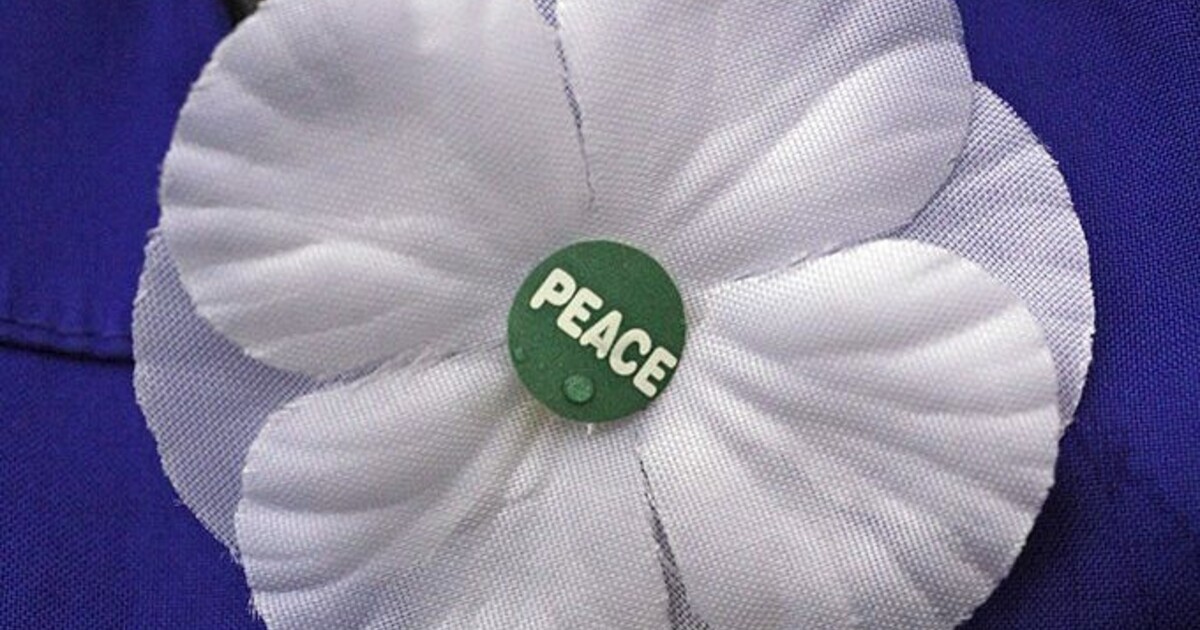Why I choose to wear a white poppy

For generations, people have gathered together in remembrance on the 11th of November, the anniversary of the cessation of hostilities in 1918, or on the following Sunday. But the feelings people have about this have always differed, and over recent years a note of intolerance has crept in. It often seems that a minority of people want this moment to become one of enforced jingoistic patriotism, or even a celebration of militarism, rather than solemn remembrance.
On the eve of this year’s Armistice Day I want to say something not only about why I choose to wear a white poppy and what this means, but also about what we would lose if remembrance ceases to be a shared moment between people whose values are different.
Within three years of the armistice, the Royal British Legion had adopted the red poppy as a symbol of remembrance. Over many years it became a familiar sight in the UK, and also in some of the countries which were the UK’s allies in the two world wars. More recently it has grown into a vast fundraising brand, generating revenue of over £47 million last year.
But within just a few years of the poppy’s first use, there were already some concerns being expressed. Indeed some early remembrance events were even protested by former soldiers. Nobody disagreed with the first imperative of remembrance, the desire that we must “Never forget”. But the feeling grew that the other shared determination just after the war was already being sidelined – not only “Never forget”, but also “Never again!”
Some people suggested adding the words “No more war” to the poppies produced by the Legion, but this didn’t catch on. Then in 1933 the first white poppies were distributed by the Co-Operative Women’s Guild, with Peace Pledge Union taking the project on shortly after that. They have been produced ever since, partly as a sign of commitment to peace and partly as an act of remembrance for all the victims of war, rather than only the military from our own country and its allies.
Of course there will always be different views about the role of the military, or whether any particular conflict is justified. I’ve never seen why the loss of civilian life shouldn’t be remembered with the same dignity and respect as the loss of those in the military. But the context is very different now than it was in those first years after the armistice of 1918.
In that war, the vast majority of the lives lost in the fighting were those of soldiers. But given that countries on both sides used conscription to force their own citizens to fight, the slaughter affected every community and almost every family. Today, the large majority of those killed in war are civilians, and many wars have pitted professional soldiers who chose to enlist against the victims of conscription. An act of remembrance which is focused on the military dead has therefore lost its universalism and its inclusiveness.
Another factor that leaves me uncomfortable with the Royal British Legion’s poppy appeal is its tie-in with the arms trade. Weapons manufacturers such as Lockheed Martin, Thales and BAE Systems, which are directly implicated in profiting from the continuation of conflict and repressive violence, are surely legitimate targets for criticism from anyone for whom remembrance of the lives lost to war involves saying “Never again”. Yet all these companies have actively promoted the RBL poppy appeal over the years, no doubt wanting to be seen to participate in the social ritual of remembrance, while their share values continue to depend on warfare. The Legion itself has done little to distance itself, and is accused of actively soliciting this relationship. I cannot help but question the value of remembering those killed in war without committing to a more peaceful future.
Armistice Day. Remembrance Day. Poppy Day. Call it what you will. But if this annual event is to be a shared moment for our whole society then it must bring together people whose values differ, those who might chain themselves to the railings outside Faslane as well as those who might be found in uniform on the other side of the fence. It must avoid any suggestion of hostility between the white and the red poppy, or the people who wear them, and ask instead that we reflect on what we share in our human reaction to war and its terrible cost. It must allow for a moment of pause, of silent reflection on all that is lost in war and on the reasons why we continue to perpetrate it on one another.
Next year will be the 100th anniversary of the armistice of 1918. I hope that for all of us, whether we choose to wear one poppy or the other, or both or neither, it can be a chance to respect our differences and say together not only “Never forget” but also “Never again”.
